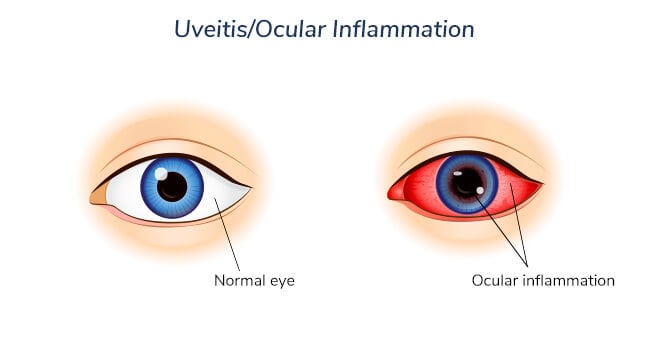Uveitis/Ocular Inflammation
Schedule an Appointment
Call 713-668-6828
What is Uveitis?
The term uveitis specifically refers to inflammation involving the uvea, the middle of the three layers of the eye, but the common usage includes any inflammatory process of the eye. Ocular inflammatory disorders such as uveitis, scleritis, orbital inflammation, and mucous membrane pemphigoid are a leading cause of visual impairment and blindness.
Ocular inflammation occurs in all ages, including very young children, and may represent the aftermath of an infection, such as cytomegalovirus or shingles in the eye, or may be associated with an autoimmune disease, such as rheumatoid arthritis, juvenile rheumatoid arthritis, lupus, and sarcoidosis. It may also occur in the absence of systemic inflammation.


Common Symptoms
The most common symptoms of uveitis are blurred vision, floaters, eye pain, light sensitivity, and redness. Ocular inflammation may not include all of these symptoms but only one or two. If you or your family physician, rheumatologist, or general ophthalmologist suspect that you have uveitis, a thorough ophthalmologic examination and treatment to control the inflammation are of urgent importance.

